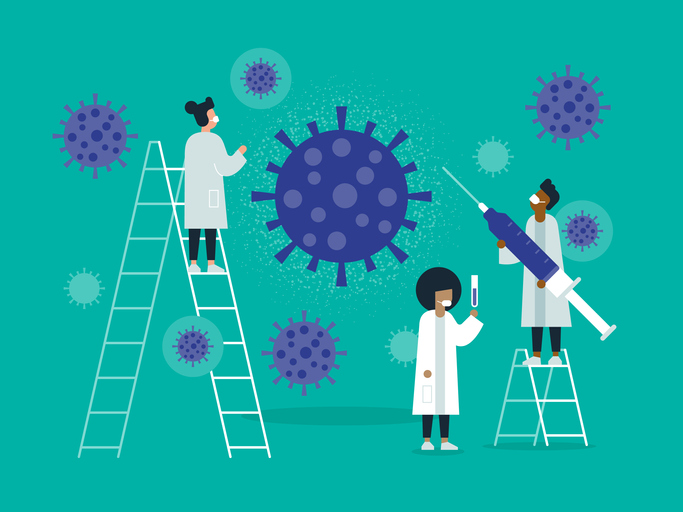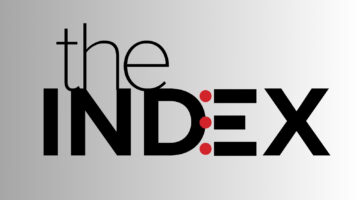
As the Covid-19 pandemic continues to rage across the U.S., the Biden Administration faces a big task ahead, starting with its goal of vaccinating 100 million people in its first 100 days. Currently, just 19 million people have received their first dose, according to the Centers for Disease Control and Prevention.
A growing list of companies, including Walmart and Amazon, are lining up to help with that effort. They also hope to that their employees will be able to get their shot soon, though state plans vary widely on when essential workers can start receiving vaccines.

Understanding EGPA: The Role of Eosinophils and Advancements in Treatment Options
FASENRA® (benralizumab) injection, for subcutaneous use, 30 mg is indicated for the treatment of adult patients with eosinophilic granulomatosis with polyangiitis (EGPA). FASENRA provides a treatment option for HCPs to consider when managing this challenging disease.
Walmart, which has more than 5,000 pharmacies across the U.S., has started administering vaccines in 10 states and Puerto Rico. Dr. Cheryl Pegus, Walmart’s executive vice president of health and wellness, wrote in a blog post that it had been preparing by staffing up and building a digital scheduling tool.
“At full capacity, we expect we will be able to deliver 10-13 million doses per month when supply and allocations allow,” she wrote.
She also said the company would “stand ready” to help vaccinate people in healthcare deserts and underserved communities, through partnerships with churches, youth centers and stadiums.
Amazon, which recently opened a pop-up vaccine clinic at its headquarters in Seattle, sent a letter to President Joe Biden on Wednesday offering to help with U.S. vaccine efforts, Reuters first reported.

Consultants: Help Define What’s Next In Healthcare Benefits
Help shape the future of healthcare benefits by sharing your insights.
“We are prepared to move quickly once vaccines are available. Additionally, we are prepared to leverage our operations, information technology, and communications capabilities and expertise to assist your administration’s vaccination efforts,” Dave Clark, Amazon’s CEO of worldwide consumer business, wrote in a copy of the letter obtained by MedCity News.
The company is working with Virginia Mason Medical Center to administer vaccines to the public. Amazon is providing equipment, staffing and supplies, and Virginia Mason is handling appointment scheduling and following-up with patients for their second dose, company spokesman Glenn Kuper wrote in an email.
Washington state has also tapped Starbucks, Costco, Microsoft and a cadre of other businesses to help with the logistics of distributing a vaccine.
Janet Baseman, the University of Washington School of Public Health’s associate dean for public health practice, said there are some things companies can do to help speed up distribution, such as managing queues of people and registration systems.
“That, for Covid testing, has been super uneven across the country. In some places, they have electronic registration systems, they say come at this time, and you’re in and out after six minutes. There are other places where you’re waiting for hours in a queue of cars,” she said. “I really think this could be a great example of a public-private partnership if everybody is able to get together to collaborate.”
When will they get vaccinated?
These retailers are also keeping a close eye to when their employees will be able to get vaccinated. Each state has different plans for when people who work in grocery stores, warehouses, public transportation and other essential jobs will get vaccinated, and it’s hard to say exactly when it will happen.
The lack of consistency across state lines has made things especially challenging for national or international companies, said Nadina Rosier, general manager of pharmaceutical solutions at the Health Transformation Alliance, a cooperative of self-insured companies.
“There’s so much gray … in understanding the administration of the vaccine and where we are in the timeline,” she said in a phone interview. “You have a number of challenging factors that are affecting employers. There isn’t a consistent definition of what an essential worker is.”
For instance, it’s easier to define whether someone is 75 or older or is at high risk than if they are an essential worker, she said. This leaves companies jockeying for a place in line, including groups like the Consumer Brands Association, the lobbying group for many of the packaged goods found in grocery stores, and ride-sharing companies Uber and Lyft, which are offering free rides to vaccine appointments while also seeking early doses for their drivers.
In his letter to Biden, Amazon’s Clark also emphasized that many of the company’s 800,000 employees cannot work from home.
It seems unlikely that businesses will require all of their employees to get vaccinated, Rosier said, because of regulatory concerns around issuing any kind of mandate. But they can play a role in letting employees know when they’re eligible and reminding them to get their second dose.
Pegus said Walmart would strongly encourage its employees to get vaccinated, but is not mandating it or providing incentives, as some other retailers plan to do.
Vaccinating 100 million people will be a huge undertaking, though not impossible.
“I keep thinking that even though it is an unprecedented undertaking for the country, that the federal government does know how to do this. There is a playbook for this,” she said. “These are things that have been workshopped and thought about for years.”
Going forward, she expects to see a push from the federal government to increase vaccine supply and help states and local jurisdictions stand up vaccination sites across the country.
“I’m pretty optimistic that if we can get enough supply, the distribution, communication and coordination pieces can be tackled and improved substantially,” she said.
Photo Credit: RLT_Images, Getty Images






